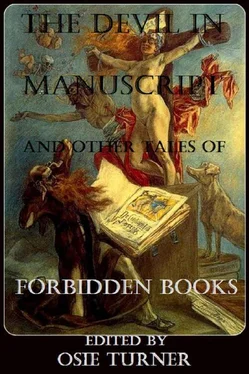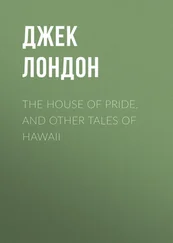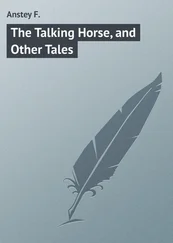“A guinea pig turn carnivorous?” he said, rising. “It isn’t done. But I imagine I could have much more fun with my hobby if I weren’t so lazy. If crimes were committed in my back yard, I feel that I would be a famous detective. Why is it that I have a kind honest man for a valet when I long for one who has all the subtle instincts of those famous poisoners of the Renaissance?”
“Personally I should prefer the kind, honest valet, Wilbur. You can eat your lettuce leaves without the fear that they may be colored with Paris green.”
“Well, at any rate, introduce me to Martin, Charley. I’m very anxious to meet him.”
But Huntington was not the only one of my acquaintances who wished to meet Martin. His story, “The Murder of Mary Mortimer,” had excited the interest and the admiration of a young writer who lived in the same apartment house as myself. During the last few months we had become friends; and when he learned that I had roomed with Martin in Paris, he was eager to know him.
Rupert Farrington was one of those young visionaries to be found in the bohemian quarter of any large city. Tall and slender, with large melancholy blue eyes and a girlish coloring, one had but to glance at him to realize that here was a dreamer who was incapable of crystallizing his dreams into a concrete form. There was something disconcertingly vague about his personality; one could forget his presence in the room as though he had no more mental or physical substance than a shadow. And yet, in spite of his apparent weakness, there were fiery depths in his nature capable of being roused into a storm. He loved his art passionately. Although he had never had anything accepted, he still worked on grimly with a firm belief that the editors were at fault. In fact he visualized these magazine monarchs, as he called them, as a kind of unscrupulous aristocracy which should be torn down. He spent his time writing, receiving rejection slips, and railing at the man in the editorial chair. His voice, even when raised, impressed no one—it was like the droning of a harmless fly.
“The Murder of Mary Mortimer” still held this young man’s fancy in an iron grip. He had a copy of the magazine in which it had appeared, now torn and smudged by countless readings, and I often found him poring over it when he thought he was unnoticed. He could quote whole paragraphs of it from memory; and often, when we had a studio soiree, he would be called upon for a ghastly recitation from those well-thumbed pages.
On the day following my nocturnal adventure, he dropped in to see me. As usual, he began to praise Martin to the skies. The unpleasant experience through which I had passed, coupled with the hearty detestation I entertained for my former roommate, made any allusion to the man almost unendurable. It was all I could do to keep a civil tongue in my cheek while the young fool raved.
“You seem to have Martin on the brain,” I said when I could get a, word in edgewise. “A man can’t be called a genius just because he has written one fairly decent magazine story.”
“Fairly decent!” Farrington cried, his large eyes flashing dangerously. “Why, it’s a masterpiece, Smithers! It stands alone in literature! It is a picture painted with words, remorseless, vivid”
“And extremely morbid,” I broke in. “That’s probably the reason he’s never been able to land any of his other work. The magazine editors know that the public doesn’t want to be fed up on horrors. Martin’s writings, like his paintings, aren’t healthy. They shouldn’t be printed.”
Farrington glared at me for a moment in speechless anger. In the same breath, I had committed two unpardonable offenses—I had criticized Martin’s work unfavorably, and I had spoken well of magazine editors. He could not have been more thoroughly aroused if I had slapped him in the face.
“I didn’t expect to hear anything like this from you” he said at length in a voice which he attempted to make calm. “You had the rare privilege of living with him in Paris, and yet you seem to have absorbed nothing of his Spartan philosophy. Wasn’t it Oscar Wilde who said: ‘There is no such thing as a moral or an immoral book. Books are well written or badly written. That is all.’”
“If I were an editor, I wouldn’t publish any of his stories,” I said stubbornly. “I’ll make you a little bet right here and now—I bet you’ll never see any more of his work in print.”
“I’ll take that,” Farrington said, rising. “You’re forgetting, Smithers, that there’s another road to the public besides the magazine route. Martin’s next thing may be a novel or a book of short stories.”
“Perhaps,” I answered, “but I’ll not retract. On the contrary, I’ll make another bet with you. I’ll bet you that if he does publish anything, someday you’ll wish that you hadn’t wasted your time reading it.”
“What do you want to bet?”
“I’ll lay a hundred on both.”
“All right; I’ll take both,” he said with a contemptuous laugh. “Martin couldn’t write anything that wasn’t worth reading. Good night, Smithers.”
“You’re young yet,” I called after him. “Someday you may outgrow this silly hero-worship.”
“I might live to be a thousand,” he said over his shoulder, “but I’ll never regret reading Martin.”
Both Farrington and I were to remember those parting words of his on a certain dramatic occasion several years later. But at the time, they seemed of no more importance than the crackling of dry shells underfoot.
Although I religiously scanned the papers for the next month or so, I found no further reference to the murder of the man in the green coat. No doubt the police considered the solution of such an insignificant mystery scarcely worth their best efforts; and the press, siding with them and quite indifferent as to the fate of the victim, very obligingly let the matter drop. The old saying, “Murder will out,” like many another old saying, has little or no foundation of truth. It is a matter for speculation as to how many unsolved murder mysteries, like submerged derelicts, are buried deep under the waters of time.
After my week’s vacation I returned to work, refreshed in body and mind. There were several portraits which had to be finished before I received the generous checks that they were thought to be worth. For the next month I was so busy that T had no time to brood over the tragedy. However, I was not yet done with the man in the green coat, as future events proved.
One night, fully two months after my adventure, Paul dropped in to see me. He had come to find out why I had not visited him since our last altercation. I had left his house in such a rage on that never-to-be-forgotten evening that he feared an estrangement in our relations might grow out of this silly quarrel. He came to straighten matters out.
“I can’t help liking the man, Charley,” he said, regarding me with his steady blue eyes. “Of course, if you’d rather not have me talk about him when we are together, I won’t. He seems to be an inflammatory topic of conversation between us.”
“I think it just as well if we don’t argue about him,” I agreed. “He rubs me the wrong way, Paul.”
“Then we will say nothing more about him.”
“Very well.”
But Paul and I were soon to realize that such a compact was impossible to keep. Hardly had we agreed to it, before the studio door was pushed violently open and Rupert Farrington strode in. His face was flushed, his hair stood on end, his eyes were shining with excitement. He flourished a volume bound in red morocco under my nose as though it were some kind of new and deadly weapon.
“I win, Smithers!” he cried excitedly. “I win!”
Читать дальше












